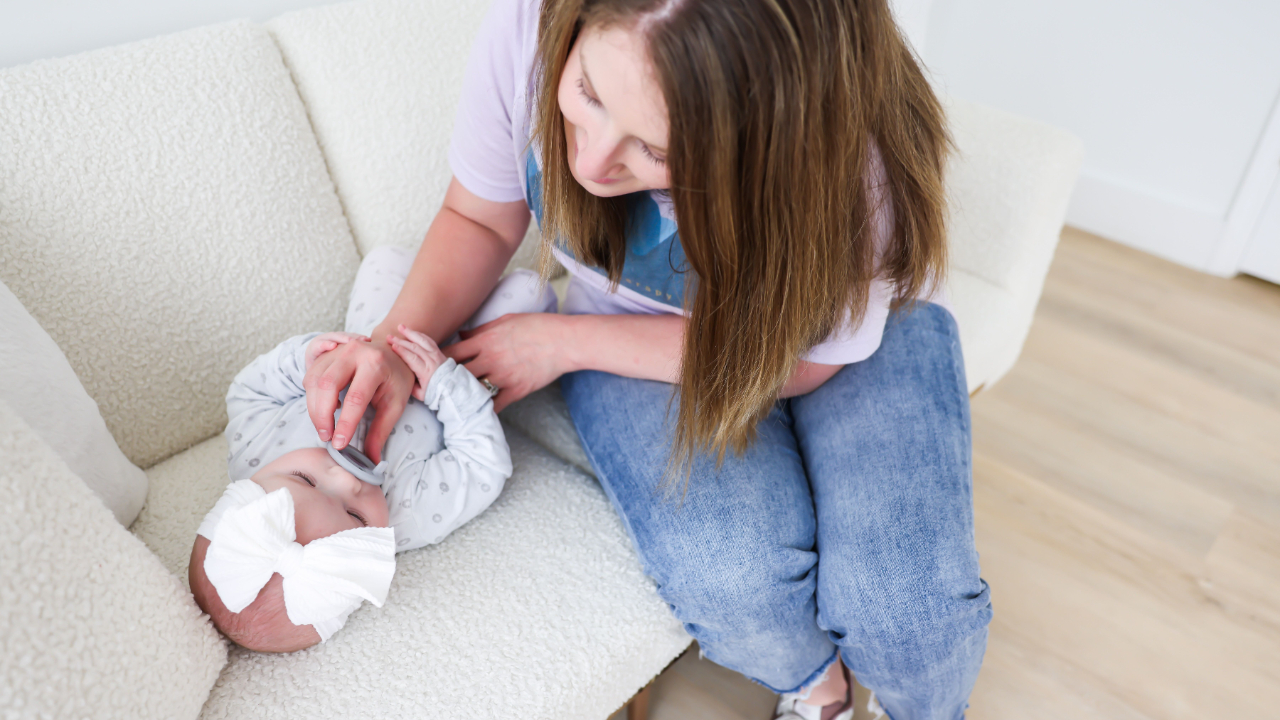Sensory Processing for Babies

What Is Sensory Processing & Why Does It Matter for Babies?
Meta Description: Sensory processing affects how your baby experiences the world. Learn what’s typical and when therapy can help.
Every moment of your baby’s day—snuggling, feeding, being rocked, or playing—is shaped by how their brain and body process sensory information.
This process is called sensory processing—and it’s how your baby’s brain receives, organizes, and responds to input from the senses:
sight, sound, touch, taste, smell, movement (vestibular), and body awareness (proprioception).
When everything is working smoothly, sensory processing helps babies feel calm, curious, and connected to their surroundings. But if the brain has trouble sorting through all that information, everyday experiences can start to feel overwhelming or confusing.
How Sensory Processing Shows Up in Babies
Sensory processing looks a little different for every child. In babies, it often shows up in how they:
-
Respond to light, noise, or textures — some might startle easily or dislike certain clothing, while others barely notice loud sounds.
-
Settle to sleep or handle transitions — some babies need consistent routines and gentle transitions to feel secure.
-
React to being held, bathed, or dressed — touch can be comforting for some and overstimulating for others.
-
Enjoy (or avoid) tummy time and floor play — this can reflect how their sensory and motor systems are working together.
Some babies are more sensitive, becoming easily overwhelmed by new sensations or needing extra help to calm down. Others are sensory seekers, craving constant movement, pressure, or touch to feel comfortable and engaged. Both are normal variations—but when sensory needs start to interfere with feeding, sleeping, movement, or calming, that’s when therapy can make a big difference.
Why It Matters
Sensory processing forms the foundation for so many early developmental skills—like movement, coordination, emotional regulation, and even communication.
A baby who struggles to tolerate touch may resist diaper changes or clothing. A baby who avoids movement might miss out on the experiences that build strength and body awareness. Over time, these small daily patterns can affect how your baby explores, learns, and connects.
By noticing and supporting sensory needs early, we can help your baby feel safe and confident in their body and environment.
How Milestones Therapy & Wellness Can Help
At Milestones Therapy & Wellness, we use play-based, gentle, and individualized techniques to help babies and parents find balance.
Therapy might include:
-
Guided movement and sensory play to build comfort and body awareness
-
Strategies for soothing and regulation to make daily routines easier
-
Parent coaching for understanding your baby’s cues and supporting their needs at home
-
Activities that help your baby feel calm, curious, and connected rather than overwhelmed
Our goal is to support both baby and parent—helping you understand what your little one’s responses mean and how to create positive sensory experiences throughout the day.
When babies feel safe in their sensory world, they’re free to explore, move, and grow with confidence.
Want to stay updated?
